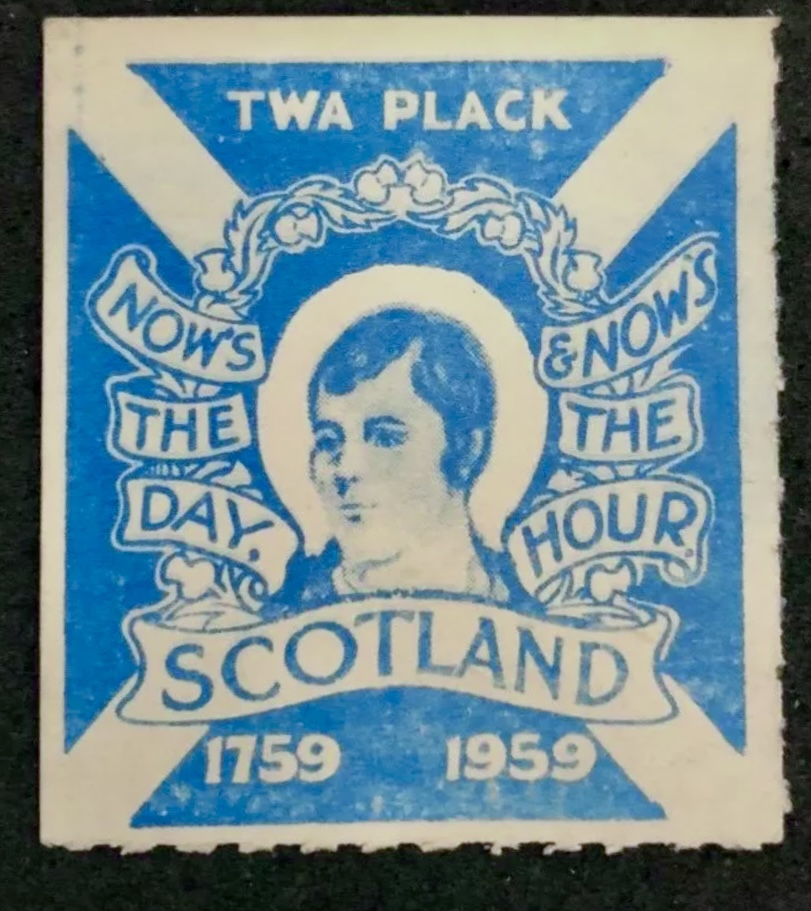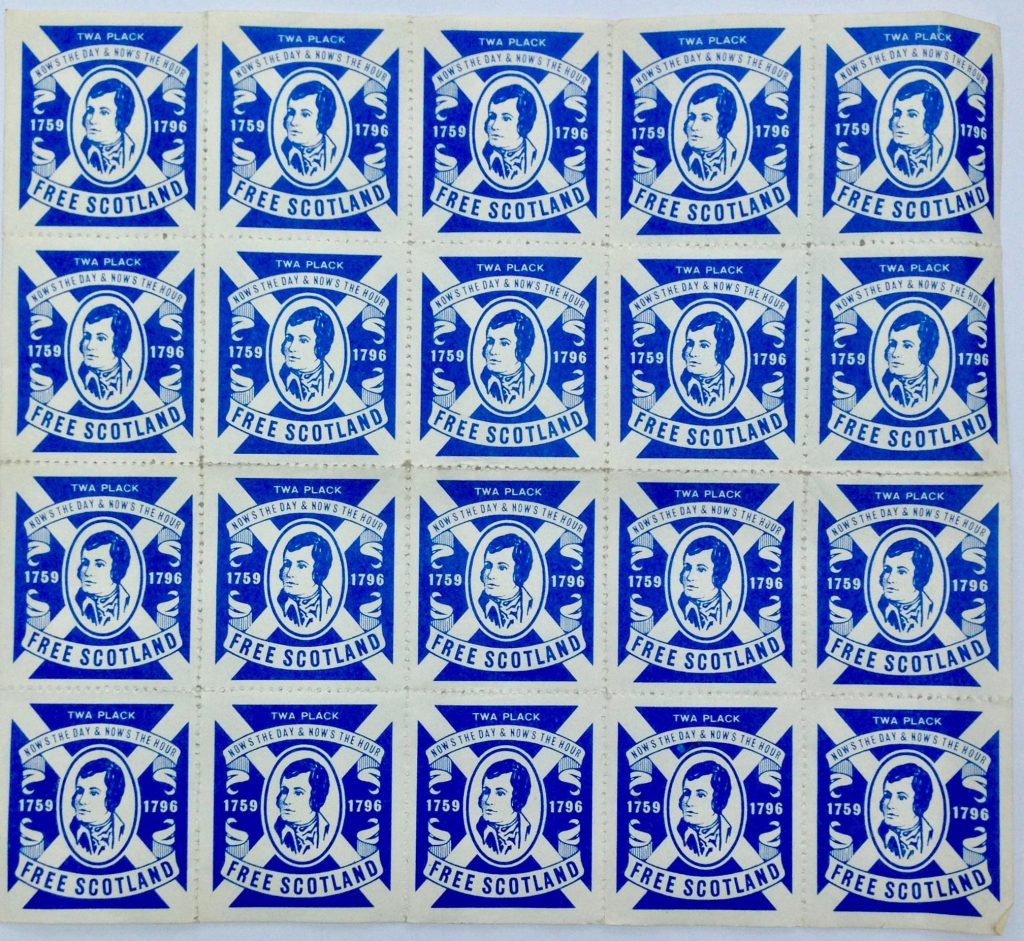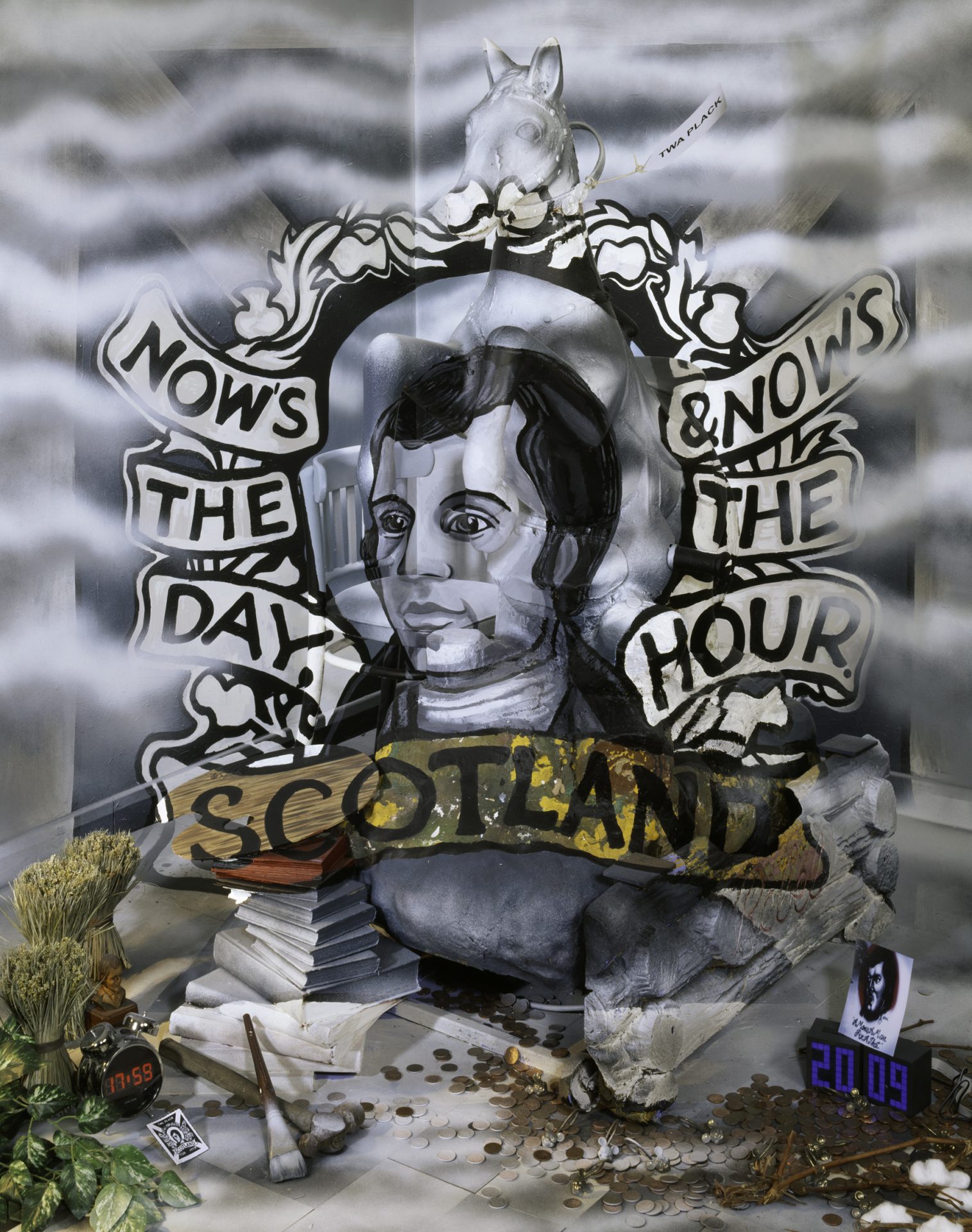
The work of the same title is based on the ‘Twa Plack’ label/stamp (above) produced in 1959 by the Scottish Secretariat (a radical organisation founded in 1926) as part of an unsuccessful campaign to persuade the Postmaster General to issue a commemorative stamp to mark the bicentennial year of Burns’ birth (a stamp was finally issued in 1966). They were frequently placed (illegally) next to the official postage stamp and thus postmarked, but more often than not stuck on lamp-posts, walls and the windows of Glasgow tram cars.

A plack was a small copper coin, the sixtieth part of a pound Scots (ie two-thirds of an English penny), and although the coin itself had long since ceased to circulate since the time of Burns, the expression was still current in many popular sayings, and, indeed, it figures in Burns poems to signify a trifling sum.
My version, fifty years later, hints at financial turmoil and devalued currencies in a time of less clear-cut political opposition. Particular relevance for the Scottish Independence Referendum lies in Burns’s Bruce inspired call to action –Now’s the day, an now’s the hour[1] and George Osborne’s notorious ‘sermon on the pound’.
[1] ‘Scots Wha Hae or, Robert Bruce’s Address to His Troops at Bannockburn’ by Robert Burns.
Scots, wha hae wi’ Wallace bled,
Scots, wham Bruce has aften led;
Welcome to your gory bed,
Or to victory!
Now’s the day, and now’s the hour;
See the front o’ battle lour;
See approach proud Edward’s power—
Chains and slavery!



